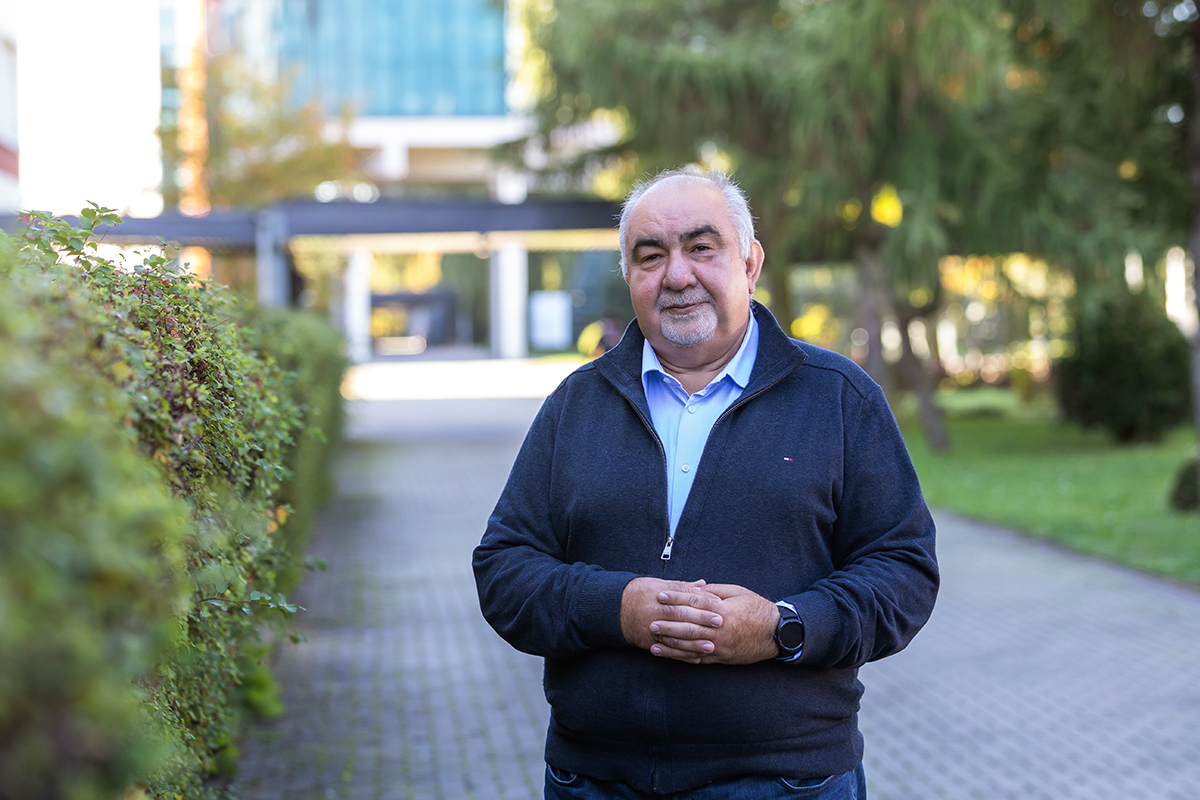How do we combat drought? BUT expert explains
21-01-2022
Is our land slowly turning into a desert? The water is getting scarcer. Poland is not an exception. We’re facing dangers caused by the devastating effect of drought. Lech Magrel, PhD, Eng, expert of the Faculty of Civil Engineering and Environmental Sciences of BUT explains how we can prevent drought and fight its effects.
Have we fallen into disfavour with Mother Nature? On the one hand we’re falling victim to floods, on the other we’re experiencing terrifying droughts. We can blame global warming for all these phenomena, but the truth is that we are responsible for them too. Garden watering, long baths instead of showers, cities devoid of greenery… We’ve had our share in it. How much time do we need to understand that we can, in fact, run out of water?
In recent years, we’re facing drought every 2.5 years on average, whereas before it was 5 years. Awareness of the threat posed by this fact is growing, but system solutions are needed.
A plan to fight drought was developed. Since 18 September 2021 a regulation aiming to improve the state of water management in Poland is in force. What does it mean in practice? What can we do to prevent water shortage in Poland?
– The regulation of the Minister of Infrastructure on the adoption of a plan to counteract the effects of drought categorises actions we can take. They also result from EU directives imposing the obligation of developing programmes for river basins, mainly the Vistula and the Oder. The planned activities also apply to specific basins, communes, voivodeships and includes activities related to investments in these areas that are aiming to counteract the effects of drought and flooding. The regulation includes estimated costs we have to incur to effectively implement the plan. – explains Lech Magrel, PhD, Eng, expert of the Department of Technology in Environmental Engineering of BUT.
Reduction of drinking water resources, fire hazard, destruction of crops – we are all affected by the effects of drought, albeit it mainly takes its toll on farmers. In 2019, crop losses were estimated at about one billion zloty. The problem affected about 150 thousands agricultural holdings.
– We turn the faucet and the water is there. It might be reassuring, but only seemingly so. In fact, we are a country whose water resources are very scarce. Almost as scarce as those of desert countries. Does it sound unbelievable? Water resources of other EU countries amount to almost 4.5 thousand cubic metres per person, whereas in Poland it’s only 1.6 thousand cubic metres. This is a problem that we need to work on solving on every level, be it government, local government or civil society. An appropriate land planning taking water retention into account is necessary. Green cities could serve this purpose well.
As our interlocutor argues, we should move in this direction and try to retain as much water in the ground as possible. This could be done by means of the so-called small retention, i.e. retaining the water or slowing down its run-off.
Thankfully, Podlaskie and Warmińsko-Mazurskie Voivodeship hardly suffered any losses, as they’re rich in marshes and forests that simply retain the water, such as the Biebrza Valley or the Narew Valley. Renaturalisation of rivers and restoration of their natural, meandering channels is crucial. The society can also help by saving water, collecting rainwater, avoiding lawn watering… There are lots of ways.
But what are our neighbours doing about it? Are there good practices that can serve as a model for us?
– I always say it’s better to learn from other people’s mistakes. The United States are currently renaturalising rivers, just like Germany or France. There are communes in Poland that use green roofs, resign from pouring concrete into every single public space, use openwork parking lots and reservoirs retaining water during floods. Global warming is undoubtedly progressing. We need to realise that the number of violent phenomena like tornadoes, storms and heavy rains will increase. It’s good to draw on others’ experiences and best practices in order to counteract this. – the specialist argues.
Bialystok University of Technology does not stand by idly. It shares the knowledge of its experts who actively participate in work of scientific councils of national parks of Narew, Biebrza and Wigry or other landscape parks. These are grounds characterised by the small retention. Staff of the Faculty of Civil Engineering and Environmental Sciences actively participate in the activities concerning infrastructure or heavy rain effects counteraction programmes. They raise awareness, but also educate future specialists of Environmental Engineering who acquire appropriate competence in the field of environment protection.
Lech Magrel, PhD, Eng, Assistant Professor in the Department of Technology in Environmental Engineering of the Faculty of Civil Engineering and Environmental Sciences.
For many years associated with Bialystok University of Technology, where he received his doctoral degree in technical sciences in 1992.
A specialist in environmental engineering, mining and energy. In his scientific work, he focuses on renewable energy and its impact on the environment, economics and legal aspects of environmental protection and protected areas.
Known for research projects related to non-industrial use of dewatered sewage sludge and the study of biogenic compound circulation in sewage treatment plants.
Author or co-author of over 200 publications, author of 7 monographs, evaluations and various analyses and expertises.
Outside the university, he’s active in state and local government institutions and community organisations and holds numerous positions in national and international scientific and professional associations.
Since 2010, President of a branch of the Polish Association of Engineers and Sanitary Technicians.